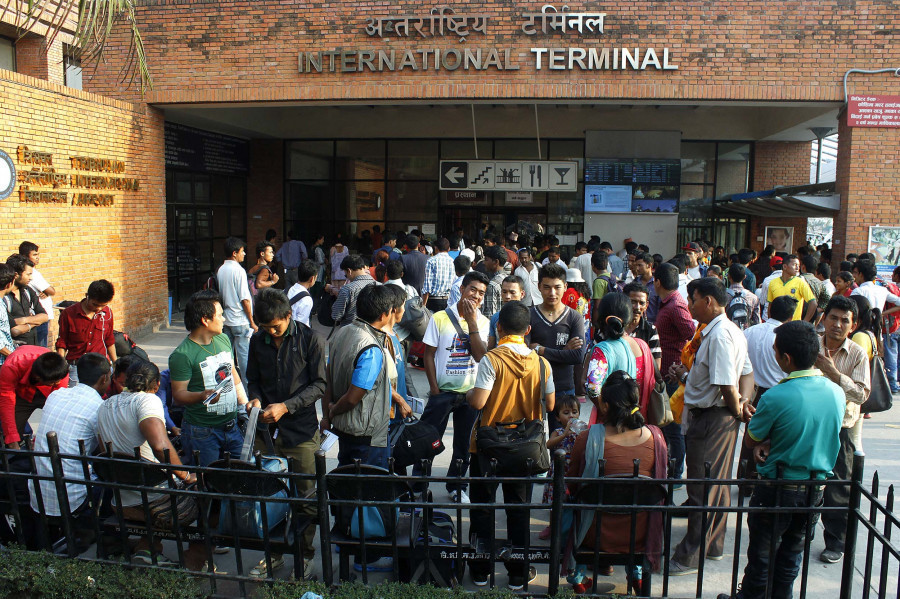Editorial
For a few dollars more
We must begin to ask ourselves if the foreign labour market is worth dying for.
The controversy over the Qatari police allegedly trying to recruit Nepali nationals for its security forces has resurfaced this week. This follows the fiasco, in November last year, that the Qatari police had tried to bypass Nepal's foreign employment rules. The issuance of a visa to a Nepali national last week under the category Police Army Staff for work in Qatar has raised suspicion among Nepali authorities that migrant workers are being sent to the Gulf state illegally.
Qatar had recruited 179 youths legally in the first phase early last year, but had allegedly bypassed the government's guidelines while recruiting 300 youths in the second phase. Nepal had suspended three recruitment companies that were found to be involved in conducting interviews for recruitment without following the due process. Government officials have said they are trying to ascertain the authenticity of the visa and check whether the alleged wrongdoing is the handiwork of the Qatari police or of local manpower companies duping job seekers by misusing the name of the Qatari police this time. However, as the Post reported on Monday, the candidates are being asked to pay a hefty sum of over $6,000 for getting the security force job. This means that the agencies have possibly returned to business clandestinely.
In addition, there are reports that foreign employment agents are already recruiting Nepalis through India after the Nepal government refused to release labour permits and started raiding Nepali manpower companies. If this is true—as Foreign Employment Department Director-General Kumar Prasad Dahal thinks it is—it is a case of human trafficking, and the government must take this matter up with India and Qatar immediately to ensure that Nepali youths seeking foreign employment are not duped once again.
Qatar has been a major labour destination country for Nepali migrant workers, with 31.8 percent of them taking up jobs in the Gulf country in 2018-19. The ongoing controversy does no good to the relations between Qatar and Nepal, both of whom have been inter-dependent on each other for labour force and remittance respectively. The Nepal government cannot afford to remain lenient this time, and should conduct a swift investigation to bring the wrongdoers—if any—to book at the earliest.
But there are other things too that Nepal must consider as it begins to crack down on the alleged malpractices. It must begin to consider how its image is being shaped into that of a manpower country, as it encourages its youths to spend their lives toiling in foreign labour destinations. That does not mean Nepal can afford to impose a complete check on foreign labour migration. Remittances account for over a quarter of the country's gross domestic product. Nepal received a financial remittance of $8.79 billion in 2018-19 apart from the skills the migrant workers learn.
But along with the financial benefits come problems including deaths and amputations among the migrants that are part and parcel of high-risk jobs. The fact that Nepal receives three dead bodies of migrant workers on an average each day shows how foreign labour is an ongoing national tragedy. Nepalis expressed shock and dismay as 18 coffins of deceased Nepali migrant workers repatriated from Malaysia were offloaded from a Nepal Airlines aircraft on Saturday. It's about time we began asking whether the foreign labour market is really worth dying for. It definitely is not, if we have the audacity to begin thinking about how we can create more employment opportunities for youths within the country itself.




 16.12°C Kathmandu
16.12°C Kathmandu














